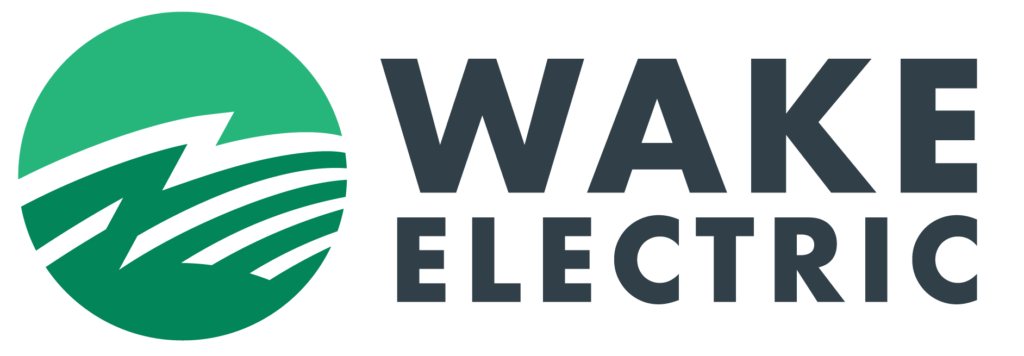Safety: Before, During and After the Storm
Wake Electric closely monitors storm-related weather to make sure we are always prepared to act quickly to restore power in the case of outages. We also recommend that our members prepare as well:
Before The Storm
- Make sure flashlights, battery powered lanterns and or other sources of light are readily available.
- Make sure flashlight and radio batteries are fresh.
- Homeowners with wells should draw an emergency water supply in case power to their electric water pumps is interrupted.
- If you evacuate, shut off your electricity at the breaker box. When you return, check for electrical damage, such as frayed wires, downed power lines, sparks or the smell of hot or burned insulation. If you find such damage, don’t turn your power on until service crews have made repairs. An electrician must repair damage inside your house. Your electric cooperative can only hook up power to your house. Co-op personnel cannot repair your fuse or breaker box or make repairs on or inside your house.
During The Storm
- Don’t open freezers and refrigerators any more than absolutely necessary.
- Listen to local radio stations for news about outages. Your electric cooperative makes a special effort to report the latest outage news to local radio stations and other media outlets.
- Turn off your heating and air conditioning systems. Unplug sensitive electronic appliances such as TVs, VCRs, microwave ovens and computers. This will protect your appliances against power fluctuations that can occur when power is restored. Be sure to wait five to ten minutes before turning on appliances and heating systems after power is restored. Be sure to turn off your electric range during a power outage. This may prevent possible damage if you’re away when the power is restored.
After The Storm
- If power lines and poles are down in your yard or in the street, always treat them as if they were energized and dangerous. Never touch them! Stay away. Call your electric cooperative to report the location so repairs can be made as soon as possible.
- Post-storm debris can hide power lines that have fallen. Fallen trees that contain energized power lines can energize any item they come in contact with, such as a metal fence, a pond or standing water. Even the ground can be energized near fallen power lines. The real danger of fallen power lines is often hidden.
- If your electric service is out, check with your neighbors to see if they have power. If they do, you may have only a blown fuse or a tripped breaker. Never replace a fuse or reset a circuit breaker with wet hands or while standing on a wet (or even damp) surface.
- If you’re without electricity and want to use a portable generator, make sure you use it in a well-ventilated area. Don’t connect the generator to your home’s electrical panel or fuse boxes. It may cause electricity to feed back into the power lines, which can endanger linemen and damage electric service facilities.
Helping line crews is appreciated, but working with power lines and electricity requires a high degree of training. In order to restore power with the highest degree of safety, restoration must be accomplished in a certain order and procedures. Above all, the hard working men and women restoring your power appreciate your patience and understanding that they are doing everything they can to restore your power as quickly and safely as possible.
